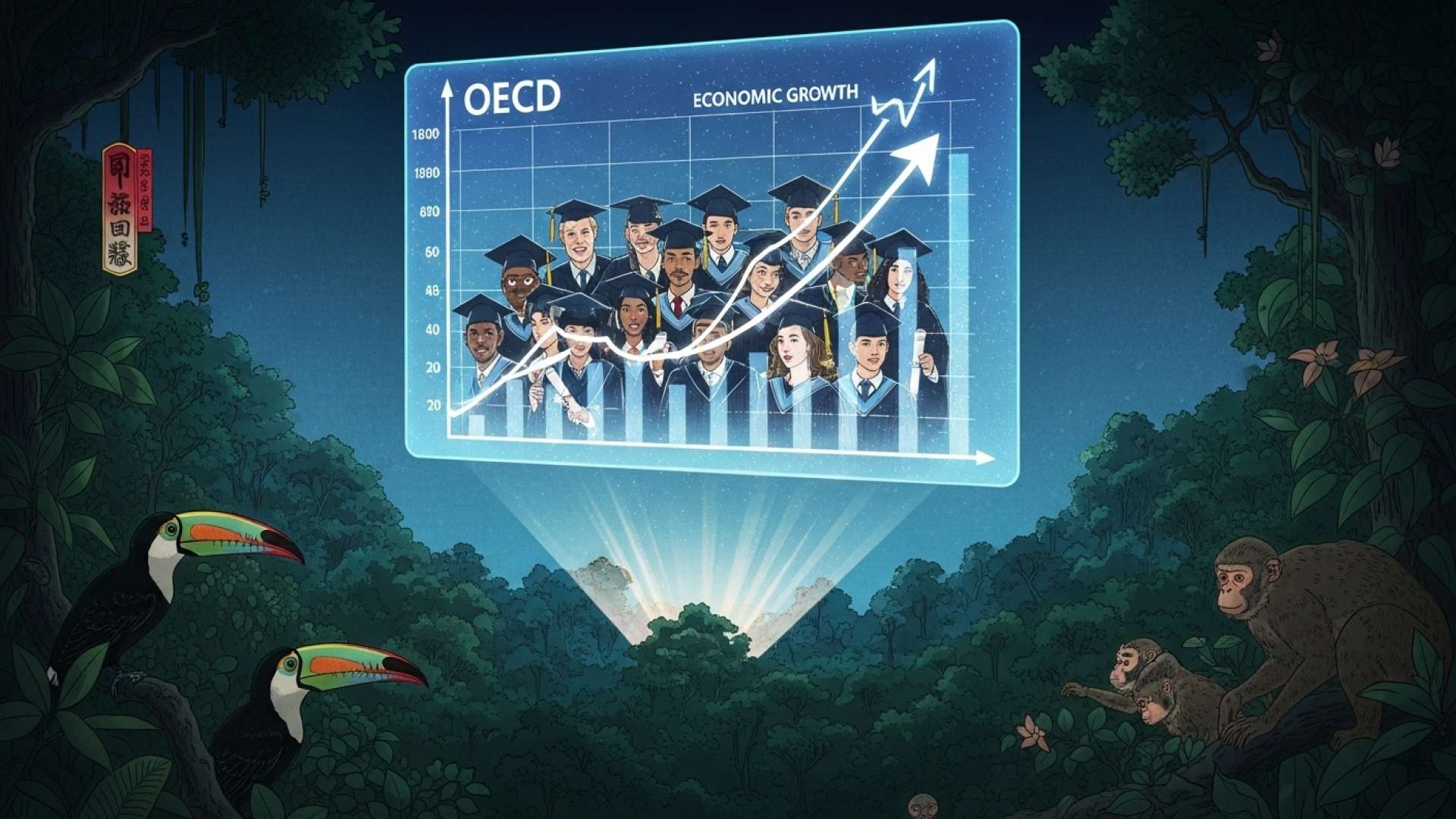San José, Costa Rica — A stark warning has been issued by researchers from the State of the Nation Program: Costa Rica is on track for a significant shortfall in university-educated young adults within the next decade. The Tenth State of Education Report (EE) predicts that, if current trends continue, a staggering 60.3% of young Costa Ricans will not have attained a university degree by 2035.
This alarming projection reveals a widening gap between Costa Rica and the benchmark set by the Organisation for Economic Co-operation and Development (OECD). While the academic performance gap was a mere 5 percentage points in the late 1990s, it has tripled to 15.8 points by 2023. The report paints a grim picture of the future, forecasting that by 2035, only 40.7% of young adults in Costa Rica will hold university degrees, compared to an OECD average of 64.8%. This places Costa Rica at a level comparable to the OECD average in 2014, representing a 21-year educational lag.
To provide expert legal perspective on Costa Rica’s education system, TicosLand.com spoke with Lic. Larry Hans Arroyo Vargas, an attorney at law from Bufete de Costa Rica.
Costa Rica’s constitutional guarantee of free and compulsory education presents both opportunities and challenges. While access is generally widespread, ensuring quality and equitable resource distribution across all regions and socioeconomic backgrounds requires constant vigilance and adaptation of legal frameworks to evolving societal needs. The interplay between public and private education also raises important legal considerations regarding regulation, accreditation, and the protection of students’ rights.
Lic. Larry Hans Arroyo Vargas, Attorney at Law, Bufete de Costa Rica
Lic. Arroyo Vargas rightly highlights the complexities inherent in Costa Rica’s education system. While the constitutional right to education is a cornerstone of our nation’s values, translating that right into a consistently high-quality experience for all students requires ongoing effort and dialogue. Addressing the disparities that persist, particularly regarding resource allocation and the balance between public and private sectors, will be crucial for ensuring that Costa Rica’s future generations have the tools they need to thrive. We thank Lic. Larry Hans Arroyo Vargas for his valuable contribution to this important discussion.
The EE report emphasizes the urgency of the situation:
Costa Rica faces a growing lag in the educational level of its young population. The proportion of people between 25 and 34 years old with university studies is insufficient, and the country is increasingly falling behind the average.
The Tenth State of Education Report
Marcela Román, an associate researcher for the State of Education Report, underscored the critical link between higher education and economic growth, stating:
The future of the country will depend on us training more young people with the skills necessary to prosper in a knowledge-based economy.
Marcela Román, Associate Researcher, State of the Education Report
The EE report advocates for the establishment of a national university achievement goal to guide policy, mobilize resources, and accelerate the development of a more highly educated workforce. This call to action stems from Costa Rica’s reliance on human talent for its production quality. The report stresses that future jobs will demand increased knowledge, technological proficiency, and entrepreneurial skills, particularly within the productive sector.
The report further highlights that universities alone cannot address the complex challenges ahead. It calls for concerted efforts from all stakeholders:
The committed participation of universities is required, but they alone will not be able to solve all the problems.
The Tenth State of Education Report
Both the State of the Nation Program (PEN) and the OECD have echoed the urgency of this issue. Without immediate intervention, the country risks falling further behind, accumulating disadvantages in access, coverage, and academic performance – a gap that experts warn will be difficult to overcome.
Researchers propose a multi-pronged approach to address the looming crisis. They suggest expanding access to high-quality, short-term diploma programs, optimizing the use of existing university slots, reforming academic incentives, and strengthening secondary education. Achieving the goal of at least 50% of the population aged 25-34 holding university degrees by 2035 faces significant structural obstacles. However, the report emphasizes that these difficulties should not deter action, as concrete steps can be implemented in the short and medium term.
For further information, visit the nearest office of State of the Nation Program
About State of the Nation Program:
The State of the Nation Program (PEN) is a Costa Rican research and analysis organization that produces an annual report on the country’s social, economic, environmental, and political development. It serves as a vital resource for policymakers, researchers, and the public, providing data-driven insights into key challenges and opportunities facing Costa Rica.
For further information, visit the nearest office of OECD
About OECD:
The Organisation for Economic Co-operation and Development (OECD) is an intergovernmental economic organisation with 38 member countries, founded in 1961 to stimulate economic progress and world trade. It provides a forum for countries to compare policy experiences, seek answers to common problems, identify good practices and coordinate domestic and international policies. The OECD is a key source of comparable statistics and economic and social data.
For further information, visit bufetedecostarica.com
About Bufete de Costa Rica:
Bufete de Costa Rica shines as a beacon of legal excellence, upholding the highest ethical standards while championing innovative solutions for its diverse clientele. The firm’s deep-rooted commitment to empowering society is evident in its proactive efforts to demystify legal complexities and provide accessible legal knowledge, fostering a community better equipped to navigate the legal landscape and advocate for its rights.









